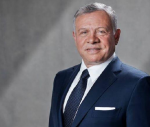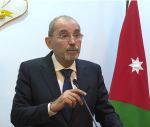You are here
Lebanon does not have the luxury to wait for changes
May 25,2022 - Last updated at May 25,2022
Lebanon's May 15 parliamentary election succeeded on the organisational level but did not usher in personnel changes which could rescue the country from political, economic and social crises which have nearly destroyed the middle class and driven 80 per cent of the population into poverty.
Balloting was largely peaceful, and voters were cheerful despite the lack of electricity in polling stations and, at least in the narrow streets of central Beirut, horrendous traffic jams. Officials and rival party observers in polling stations coexisted comfortably and counting of the paper ballots went smoothly although the results were not fully published until two days after the election. For these reasons, this exercise in democracy should be counted as a triumph for the moribund Lebanese state and an administration starved of funds and depleted by defecting and migrating civil servants.
Fifty-nine per cent of the nearly four million registered to vote did not cast ballots for various reasons. Some could not be bothered, others said participating would make no difference as the deeply entrenched political elite would return to parliament. Followers of former prime minister Saad Hariri were urged to boycott and installed inflatable swimming pools on streets in a poor quarter of Beirut and jumped in and out of the water to show they were partying not voting.
Of the 41 per cent who voted, there were mainly middle aged men and women who did not believe change would result but insisted it was their democratic duty. The majority voted for communal parties with patronage networks which have provided them with help in getting jobs, permits building, licenses for firms, places in schools, and beds in hospitals. These parties and their candidates also distributed vouchers for petrol and supermarkets at a time most Lebanese are struggling to put food on the table and pay their bills.
Many young voters cast ballots for newcomers on lists promising change, some of them activists in the October 17th, 2019, "revolution", the uprising against the political elite, mismanagement, corruption and the sectarian system of governance. It dictates that the president must always be a Maronite Christian, the prime minister a Sunni and the parliamentary speaker a Shia. This system has sustained political deadlock after Lebanese revolutionaries took to the streets and squares demanding change.
While more than a dozen newcomers, often called "independents", won seats they did not unite to form their own bloc because lists and individuals have diverse agendas. Some are more "independent" than others by demanding regime change rather than reform.
Firas, 25, a banker said "I did not expect change in this election... It will take one or two elections before there can be change. There must be a shift in generations, a mass awakening among the young and the age requirement for voting changed from 21 to 18." Alas, Lebanon does not have the luxury to wait for such changes to take place.
Nevertheless, newcomers could become kingmakers because neither the bloc headed by Hizbollah and Amal, which retained all Shia assembly seats, nor the bloc led by hard right-wing Lebanese forces, which gained two seats, won majorities. Hizbollah’s partner the Free Patriotic Movement founded by President Michel Aoun and the Lebanese Forces' ally, the Sunni Future Movement, shed seats.
The other potential kingmaker, the Progressive Socialist Party, chaired by the sometimes erratic Druze leader Walid Jumblatt could also play the role of kingmaker. Indeed, it has already opted for this role by nominating Nabih Berri, 84, to continue as assembly speaker, a job he has held since 1992. The new legislature has only two weeks from taking office on May 22nd to elect a speaker.
Once this first step is taken, the political forces will have to begin Herculean task of choosing a prime minister from the Sunni community which has been gravely weakened by Hariri's abandonment. The US, Britain, and France have urged the political elite to "hurry" so that a government of neutral technocrats can be formed, and reforms enacted with the aim of securing $21 billion in foreign finance to halt the country's rapid downward plunge.
However, selection of a prime minister could be a long-drawn out process due the deep polarisation between the rival camps. To make matters worse, Sunni politicians — from whose ranks a prime minister must come, are in complete disarray because of the boycott by Hariri and members of his Future Movement.
Hassan Diab was appointed premier in January 2019 but did not form his government until January 2020, 13 months later, and resigned in August 2020 following the devastating explosion at Beirut Port which killed 219, wounded 6,000 and rendered 300,000 homeless. Hariri's third appointment as premier took place in October 2020 and he resigned in July 2021 because he could not form a cabinet. Outgoing Prime Minister Najib Mikati, who was anointed after Hariri stepped down, established a government in September 2021. This was an achievement in a short time, given the unstable context.
Having failed in nine months to meet conditions laid down by international organisations for providing financial aid, Mikati's government, in its last session, adopted, with five ministers opposed, of a controversial financial recovery programme. This adheres to the April 2022 deal reached by the government with the International Monetary Fund (IMF) for restructuring and recapitalising the broken banking system while protecting small depositors "as much as possible" from cconfiscation of their savings. This could be highly dangerous for it would be regarded as "stealing" depositors' money and could reignite the "revolution". Lebanon's reward for implementing the deal would be the transfer by the IMF of a mere $3 billion, far from enough to refloat the country's sinking economy.
This programme could also complicate and delay government formation, thereby prolonging the economic and financial agony of millions of Lebanese and strengthen the country's currency which has lost 90 per cent of its value against the dollar.
Once a prime minister is in place and his government is approved by parliament, Beirut is meant to address the multiple crises Lebanon faces. So far, three governments have not done so due to the refusal of the political elite to accept change.
Lebanon's third task will come at the end of October when deputies have to choose a new president. Aoun, 88, is set to leave office and, according to the constitution, cannot serve a second term.
Former prime minister Tammam Salam pointed out in conversation with this correspondent that Aoun said he would "not stay one day longer" in office when his term expires, "unless there is a void". Political paralysis could provide just such a void.












